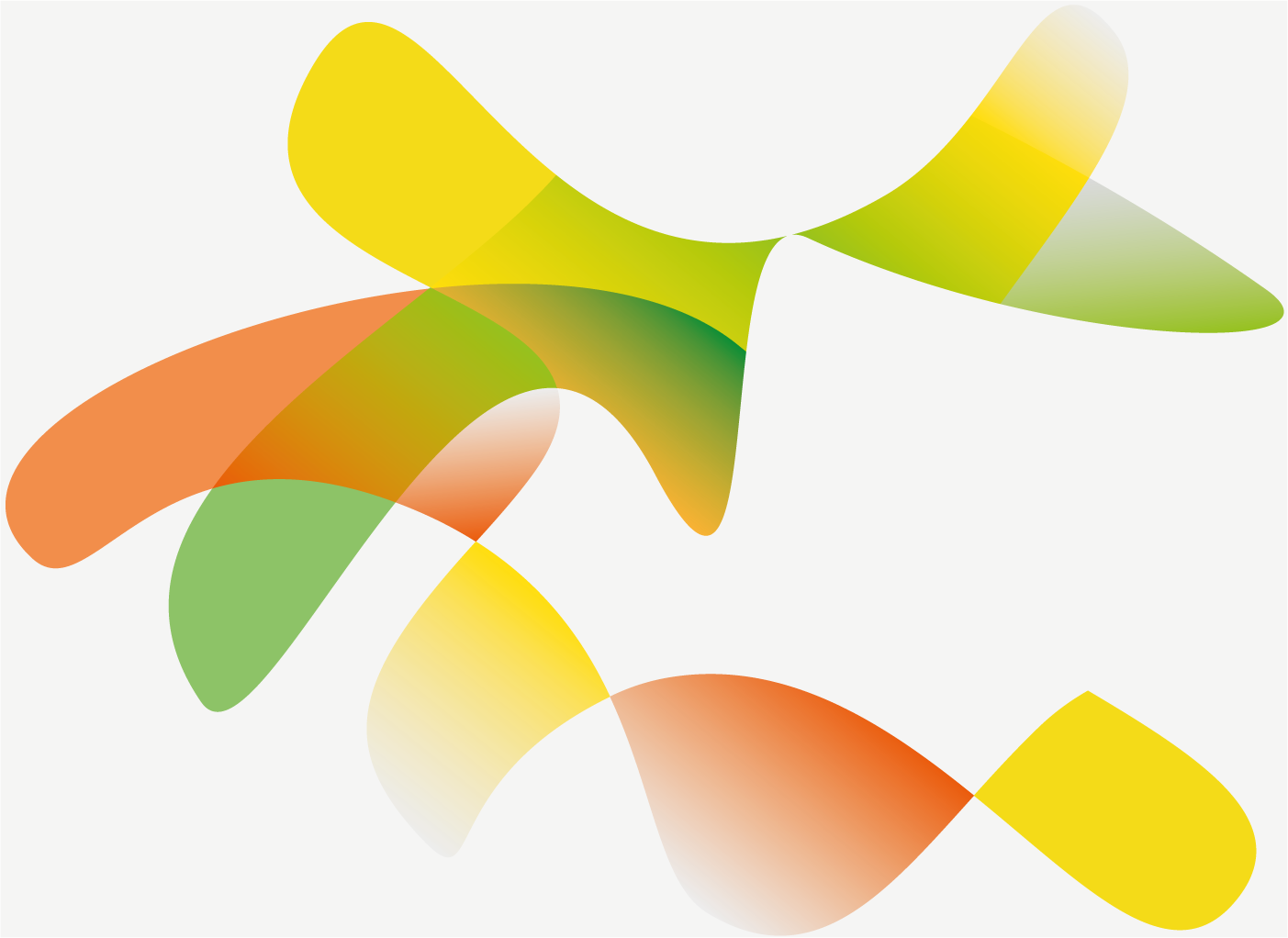The design research
When during Covid families and groups of friends started falling apart I decided to research how my practise could help this from happening in the future. I figured: If we can no longer talk to each other and judge each other based on our opinions and the groups we belong to, how will we face the challenges that affect us all in the future?
“How can I facilitate meaningful dialogues through collaborative speculative storytelling and play in order to help participants avoiding unwanted polarization?”
Was the design question I started with. The designs I created are based on theories and practice based research of social scientists and experts I interviewed and played with. The iterations with diverse participant groups let to the experience of “The Netherislands” and the creation of a prototype of the serious simulation game: “Polaris”.
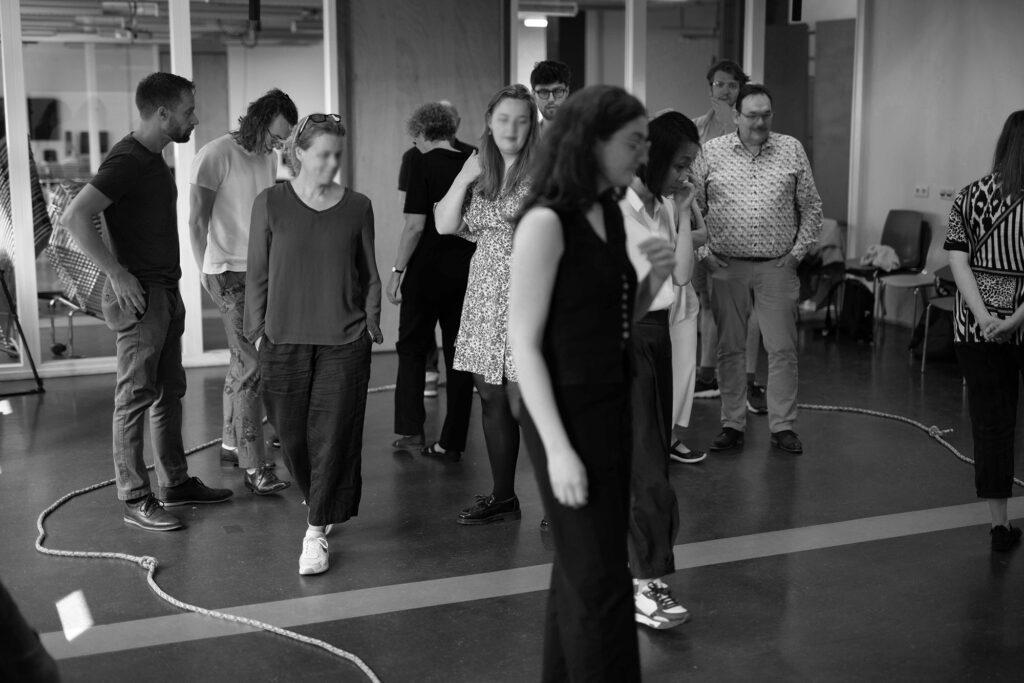
In the designed iterations I embedded the definition and the dynamics of polarization, and theoretical ways to de-polarize. This game is meant to not only give players an insight into the dynamics of polarisation, but also make them feel how it works so that they are able to anticipate, recognise and acknowledge their own role in the process.
During the research I came to learn that by using our imagination we were able to create a sense of empathy, ownership and hope in the simulation of a highly polarized society.
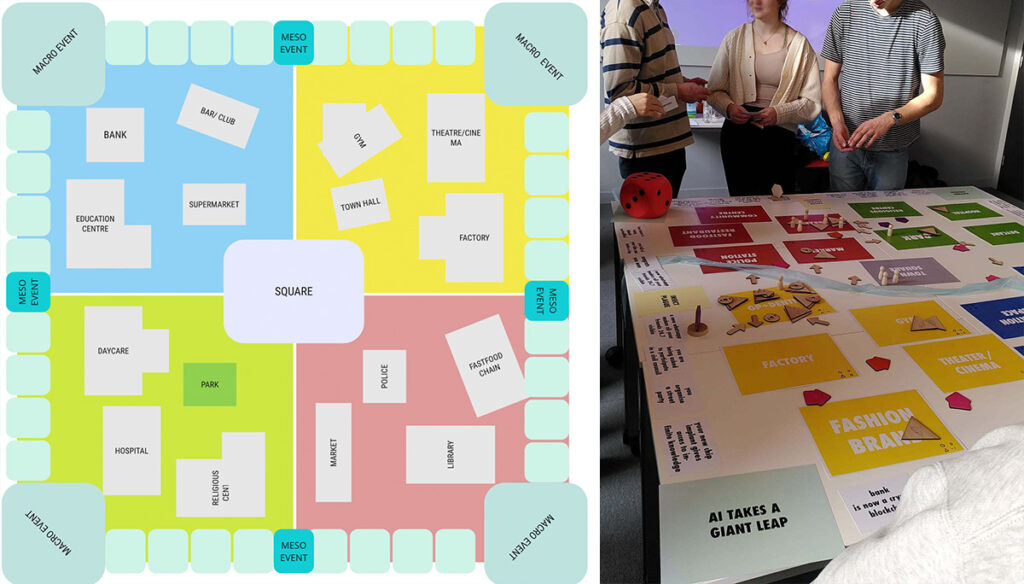
To experience how powerful collective imagination is, inspired me to use this as a tool when creating new experiences.
The design question I will move forward with will therefore be:
Can social How can I, as a designer, use collective imagination as a tool to make (future) social dynamics insightful and tangible?
It is often said that we need new narratives. But all new stories start in the imagination. To (re)connect and use collective imagination will then perhaps lead to more inclusive narratives and visions of the future.
The new practice
What characterises my work is making large, complex subjects personal by addressing them in a physical space.
To achieve this, I create spaces that allow for imagination, experience and play. I design scenarios of possible futures relevant to the group and develop games or workshops where participants rehearse living in a future society.
This stimulates the collective imagination to create shared future memories. Afterwards, we reflect on what we’ve done, deciding what to keep and what to leave behind.
My focus is on human relationships and connections. For this angle I like to initiate unusual collaborations with researchers and behavioural scientists, system experts, futurists , change professionals, systemic constellators and other designers.
My toolbox consists of methods coming from:
- ~future & speculative design
- ~design research
- ~systems design
- ~life action role play
- ~behavioural change models
- ~experience design (interaction and user experience)
- ~serious game design
- ~storytelling and communication strategies
The experiences I have co-created and co-facilitated together with Jennifer van Exel and Demian Burgenik can be played in the context of organizational change or educational settings. At the moment we are looking to expand this to the academic world as simulation for research purposes
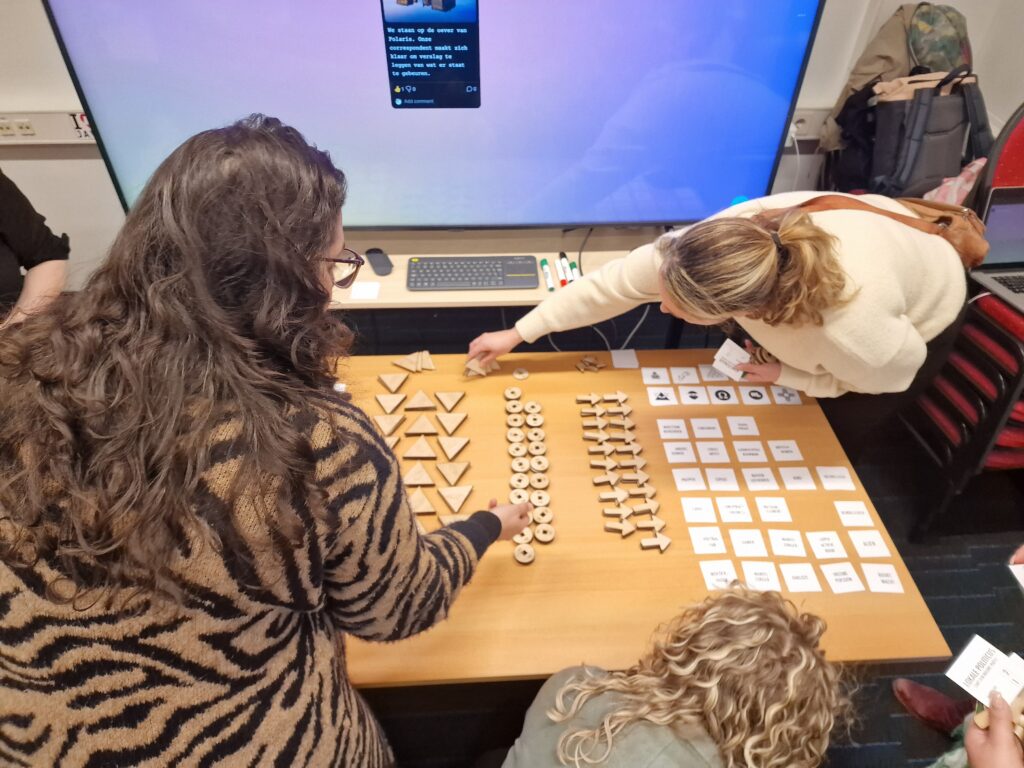
Student Political Science at the UvA:
“I remember that the way we handled the city should be the way we treat each other in this country.”
The designer
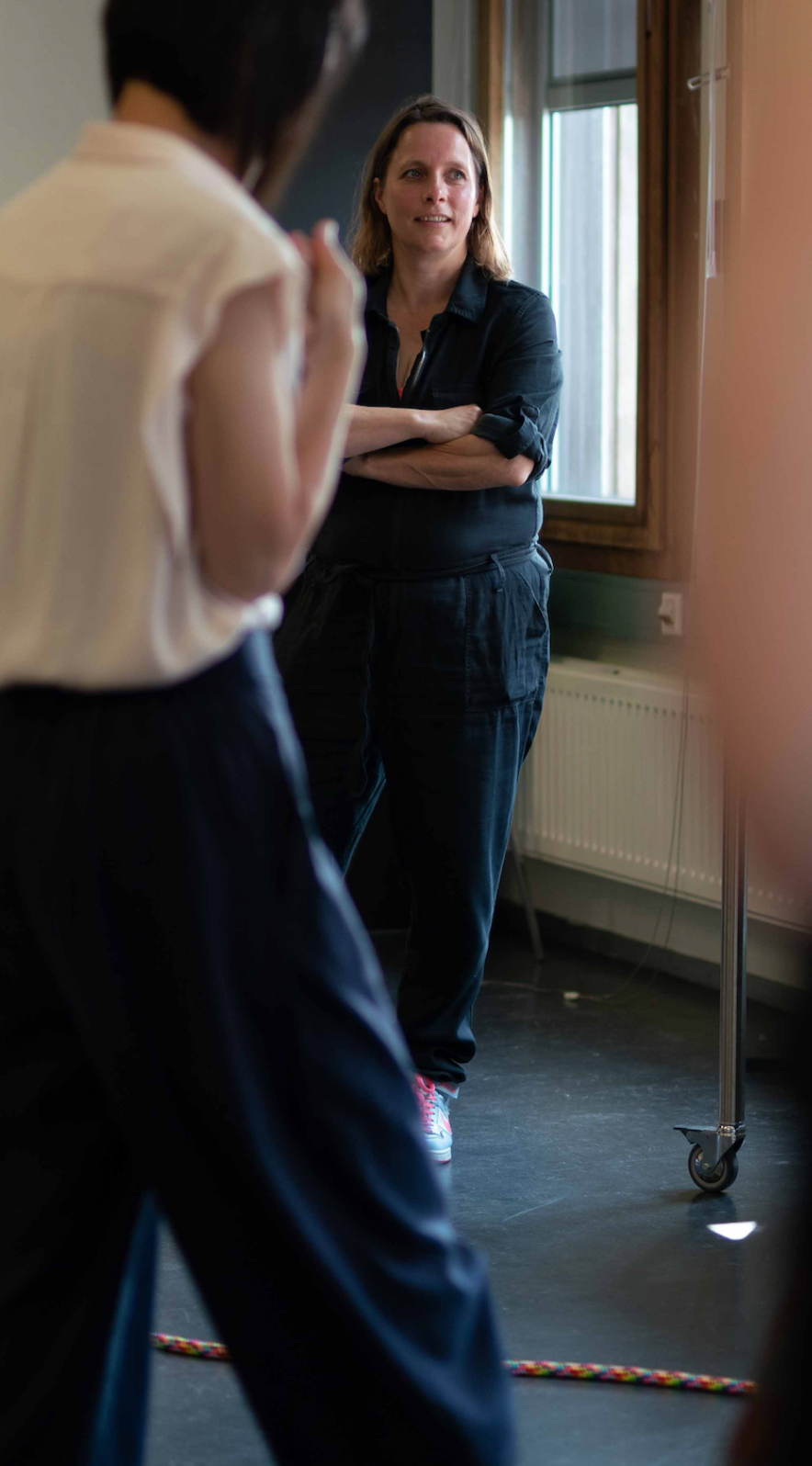
With a background in communication strategy and UX/ Interaction design as well as in interactive art the red line throughout my practise has always been a curiosity and fascination in how people (dis)connect and how group behaviour functions. (I used to be one of those awkwardly staring kids)
I am a curious observer & researcher
As an observer, I am fascinated by stories and social dynamics. In my research, I delve deep, exploring literature, consulting experts, and examining the nuances of these dynamics.
I create spaces and experiences.
I use this knowledge to craft spaces where groups can physically experience and simulate situations they wish to understand, whether current realities or speculative futures.
I facilitate.
Through these experiences, I take you into a speculative world, where I facilitate you in using your collective imagination. This will help you to discover where you stand, how you arrived here, and what paths you might take forward. Together we create future memories to rehearse possible or even outrageous futures, gaining clarity on what we want and what we don’t.
For this master I took the dynamics of polarization as a case study to explore through design research. And I will continue to do so taking on other social dynamics where making the intangible tangible and visible will be my purpose (and challenge).
If you are interested to know more about the dynamics of polarization, would like to play the Polaris or want to explore the possibility of working together, please connect on LinkedIn or contact me at esther[at]ficklefish.nl




